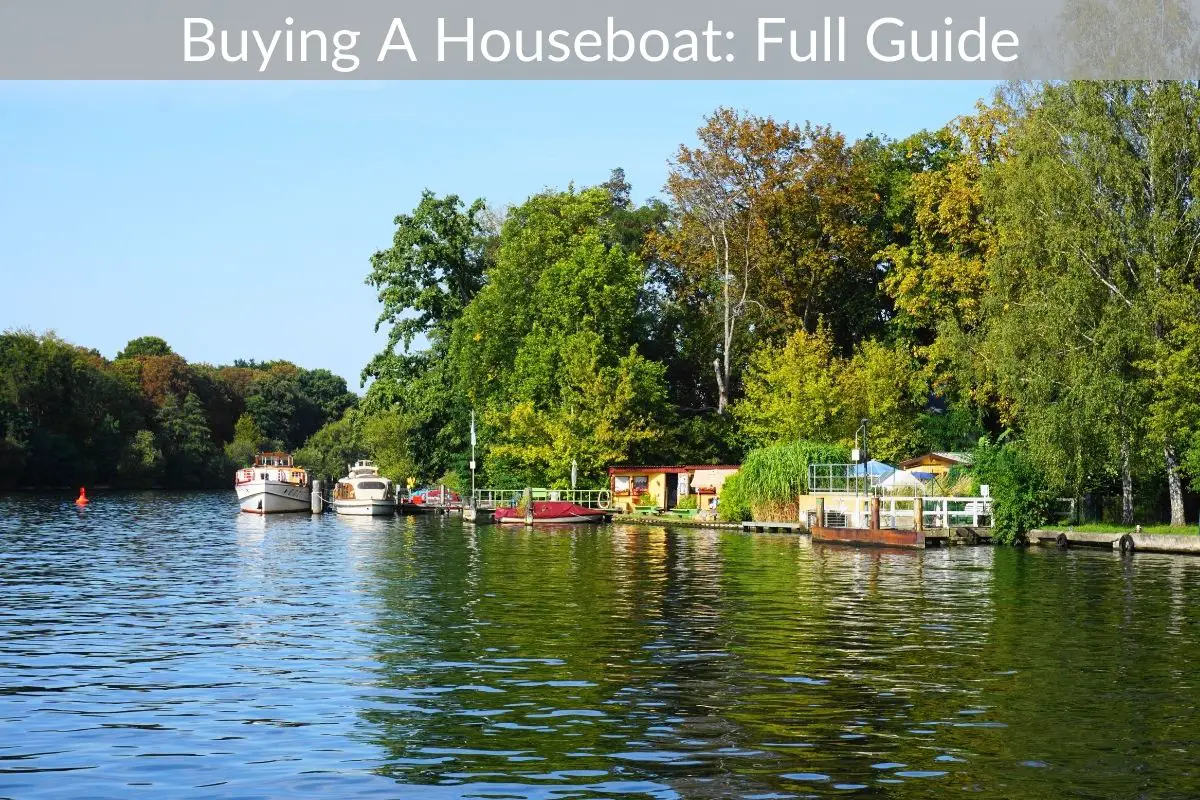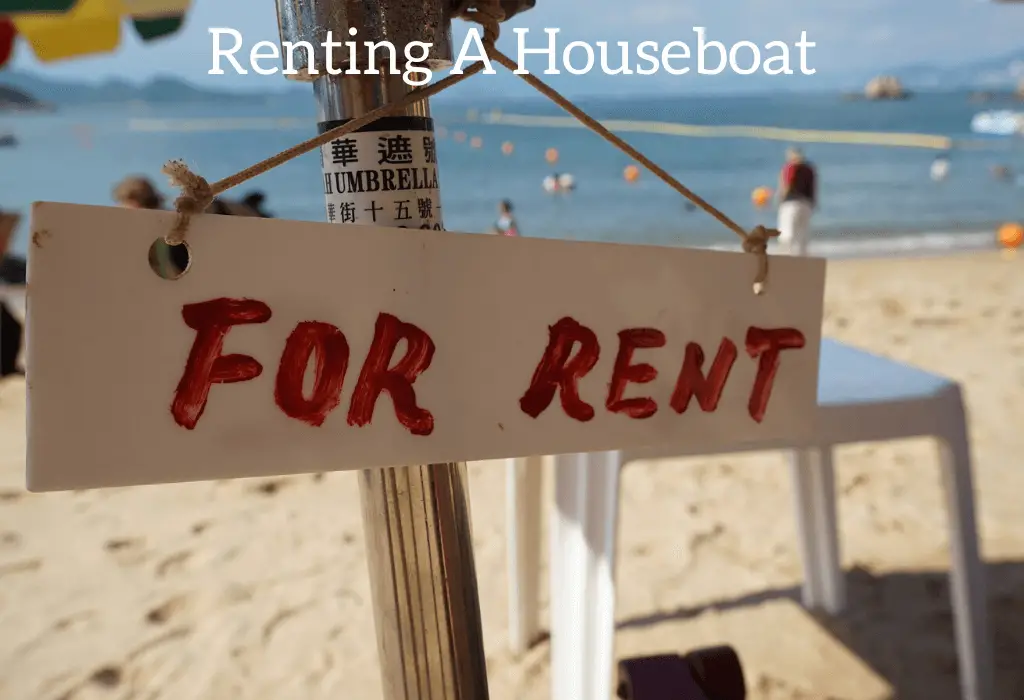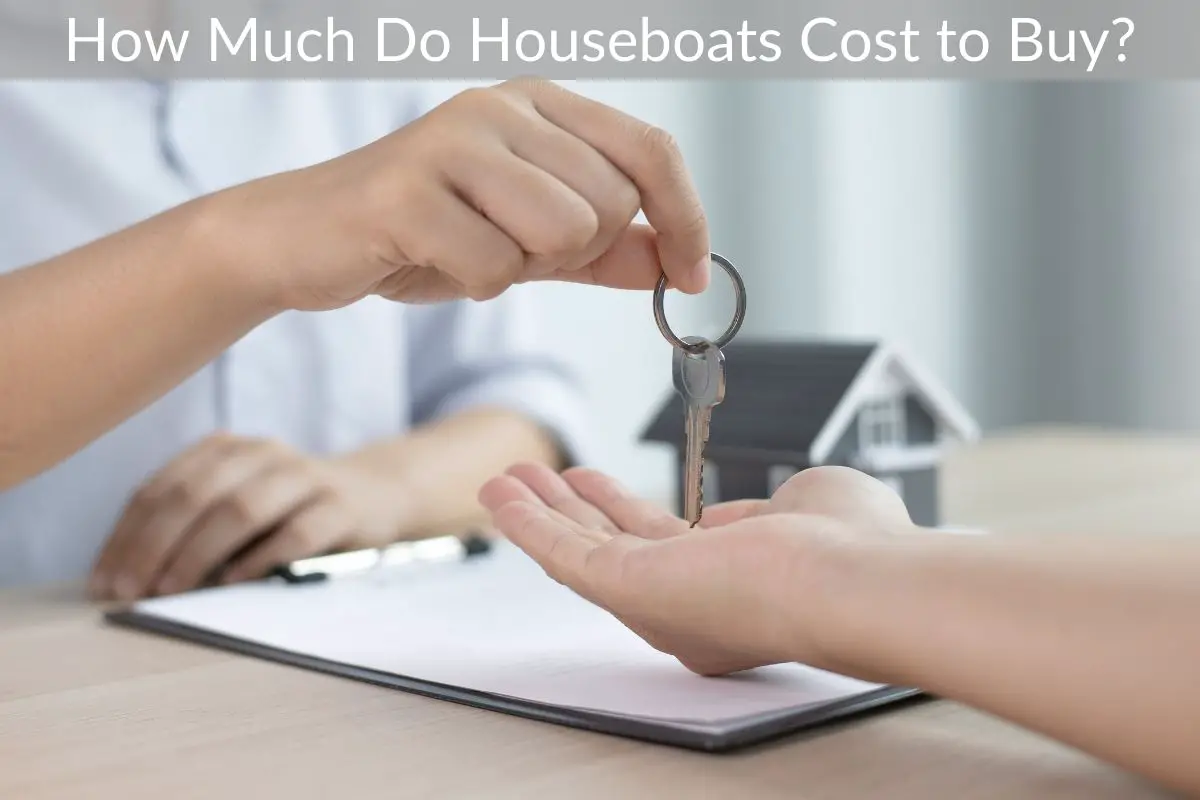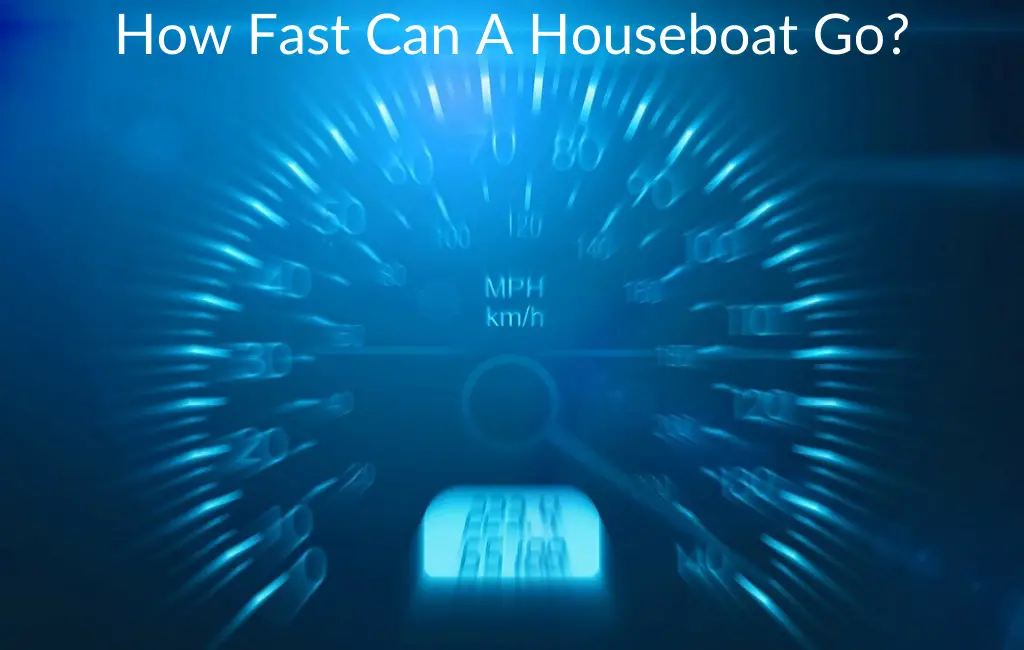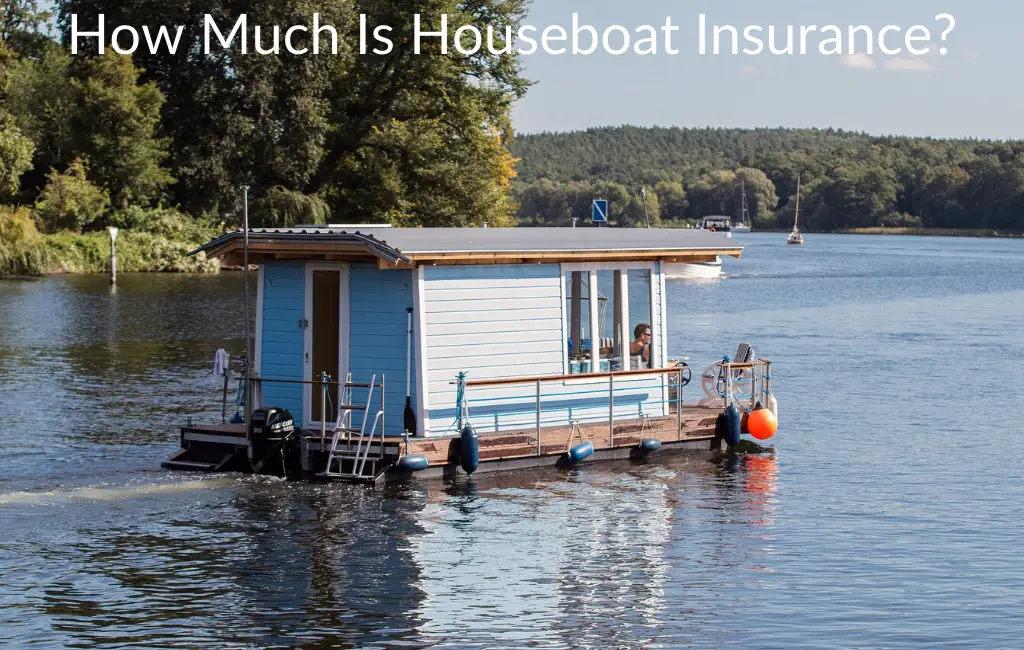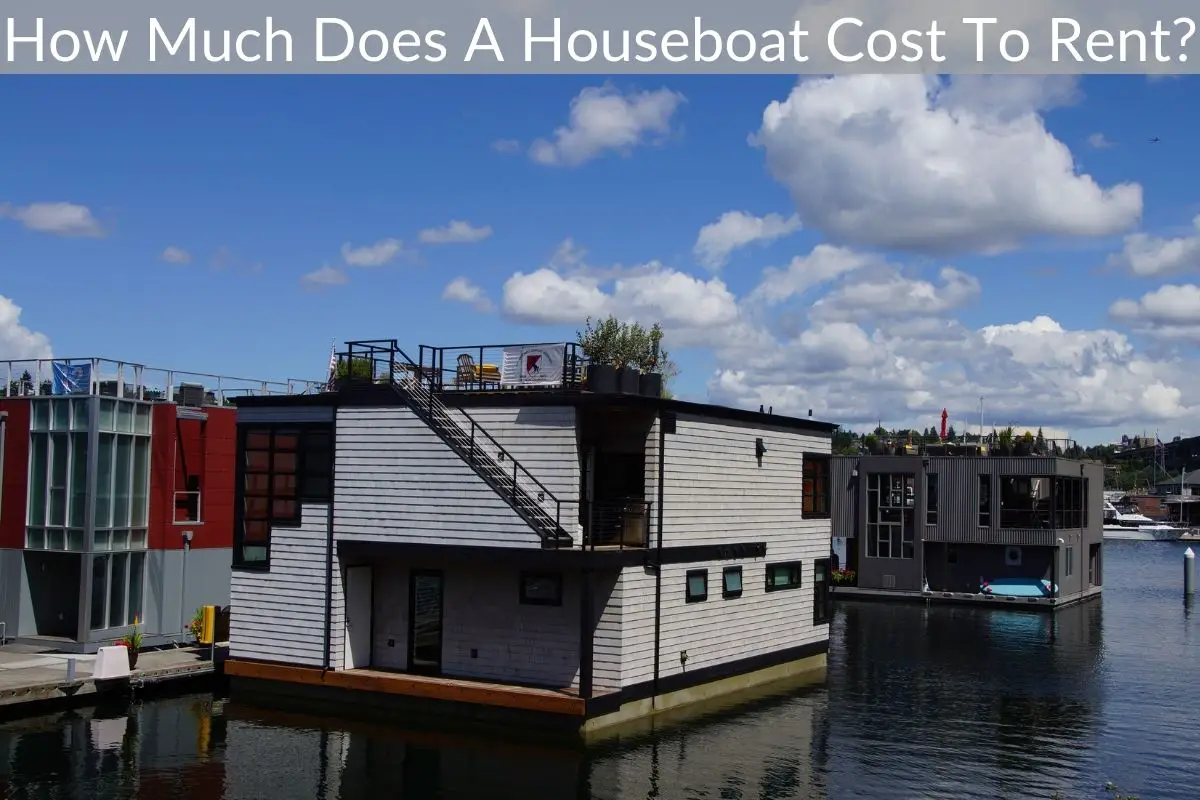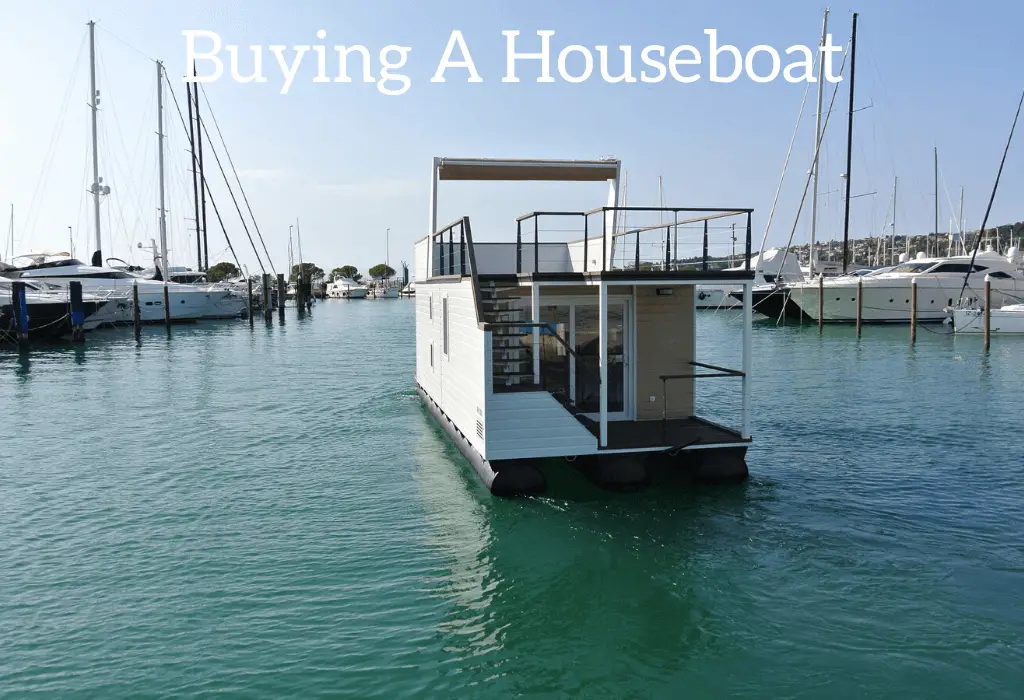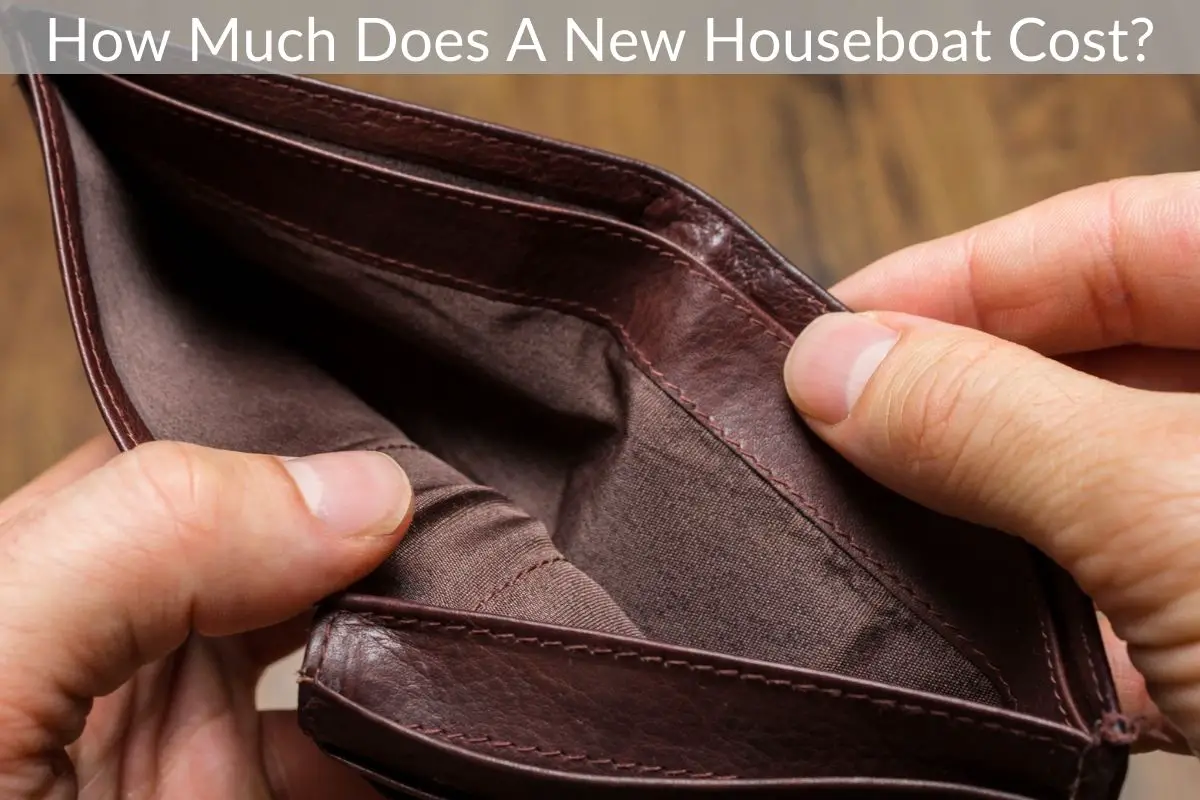If you are a boater or are just interested in boating then these stories are for you! These are 15 of the best boating and Houseboat stories that you will ever read! What are you waiting for? Get started!
*This post may contain affiliate links. As an Amazon Associate we earn from qualifying purchases.
1. The People Are The Best
“I lived on a Catalina 42 two-cabin model for three years on the San Francisco Bay. I loved it. Sadly, it was a casualty of a failed law firm I started and had to go. Shit happens when you start a business sometimes.
I’m only about 5’8″, and it had standing headroom nearly everywhere with over 6′ in the main salon. I had everything you could want on a boat including wireless high-speed internet, three flat screen TVs and electric flush toilets. I also had a second boat on it for cruising around the marina to visit friends a few docks over.
The people who live this way are the best you’ll ever meet. They’re all a little “off,” but in a good way. We would always get together a few times a week and just drink and talk. I still consider them some of my closest friends. Everyone kept an eye out for each other. I almost never locked the hatch, and absolutely nothing happened in three years. All my neighbors knew where I kept my spare key, and I knew the same for them.
Sometimes, we’d just get on someone’s boat and go for a sunset cruise around the bay. Sometimes, we’d just make dinner on the docks and eat on deck. It was awesome. It felt like freedom. I knew I could take off and sail to Hawaii or Spain, and we all had the same feelings. Some of us did do that, but most just went for day cruises. However, just knowing you could felt special.”
2. Exploring Is The Best!
“Had a relative live on a houseboat that he built himself. 43ft long, twin steel hull, twin engine. He had a king bed, full kitchen, proper dunny, dining and living rooms, and some bunks I spent few nights in. He did a great job within the space and weight limits you get on the water.
A big benefit was being able to move around, to change your landscape and explore as if you went for a drive through the country, but you’ve got all the comforts of home with you. You can’t get that from a camper van because you’re not allowed to be in the back while driving, and it’s much more enjoyable travelling by boat than car when you consider traffic and moving a big vehicle. Sitting on a couch on the river as it powers along was super chill.
Playing captain was also fun, the little challenges of docking and finding good moorings, and all the nautical stuff that comes with owning a boat. Fishing, peace and quiet, lots of respect from like minded people, etc.”
3. Like Having Our Own Private World
“I lived on a boat for 5 years with my son in Marina del Rey in Southern California. It was wonderful. We had a 45 foot triple cabin motor yacht with a flybridge.
We averaged taking it out for a trip every three weeks. When the weekend came around, we would check the weather report and if conditions were favorable we’d just take off – usually to Catalina Island which has numerous anchorages and moorings. It was fun and easy. It was like having our own private world on the edge of Los Angeles. We were in a wonderful locale and took full advantage of our mobility on the water.
Coming home to the boat after a long day at work was an absolute delight. The moment I set foot on the dock, all the cares of the day just melted away.
We were on the boat when the ’94 Northridge earthquake hit and also when the LA riots took place. I cannot imagine a better place to have been when those things happened.
We were completely self-sufficient with our own power and water – and the ability to cast off and leave at a moment’s notice. You definitely definitely have to scale back on “stuff” when you live aboard – both in amount and size. It nurtures an appreciation for finely made small things.”
4. It Saves Me $2,000 A Month!
“I live in a marina in Marina Del Rey on a 54 foot boat. The reason why is because it’s cheaper than buying a condo or house or renting an apartment here in Venice Beach. Medium home price are almost $2,000,000. Small apartments run about $3500 a month plus utilities.
Since moving to Los Angeles, I have always wanted to live at the beach in Venice but couldn’t afford it. So I decided to buy a boat to live on. It was cheaper than a house and I could dock it in the marina next to Venice Beach.
I paid $177,000 cash for a 1994 Bayliner 4788 Pilothouse Motoryacht in 2016. It was surveyed in the top 1% condition. It’s immaculate inside and out. The engines only have 300 miles on them.
I pay $1200 a month rent for a 50 foot slip in a marina right around the corner from Venice Beach. My slip rent includes water, electricity and garage parking. When I add on regular monthly boat maintenance costs like washdowns, bottom scraping, head pump outs, WiFi, insurance, and Los Angeles County property tax it costs me $2000 a month to live on my boat verses $4000 for an apartment. Liveaboards are allowed to have cats if they don’t get off the boat which is a plus because it’s hard to find cat friendly apartments.
My boat is much nicer and quieter than an apartment. It’s got 4 levels, 2 bathrooms, 2 showers, 2 bedrooms, full kitchen, big galley, bar, flat screen TVs, decks. It’s just like a house inside and it’s so quiet. No traffic sounds, no noisy neighbors, just the sounds of guls, sea lions and gentle waves lapping.”
5. Living On A Blue Paradise
“Fairly new to this as were less than 2 months in… but I can already tell you that the answer to “why?” is remarkably easy.
We live each day floating in an impossibly blue paradise and watching the sunrise and sunset over the ocean. We spend a few hours each day snorkeling or diving and enjoying the immense beauty of what lies beneath the surface of the water.
We sleep in the middle of picturesque bays for free while people pay thousands of dollars to rent a room and look at the same bay from the land instead of from the water.
We get to choose when were ready to pull up anchor and leave, we can decide how long to stay, whether to pay for food or catch our own… its ideal in many ways.
Yes… there’s also the fear factor involved. We have to deal with weather and storms, are having too learn to sail and to fix whatever breaks on board. How to anchor and make sure we don’t drift away in the winds or crash against a beach/coral… but so far in our mind the values/freedom of the lifestyle make this a small price to pay for the experience.”
6. Take My Home With Me
“The idea is that I can take my home with me, be as close or as far from civilization as I want.
I do it because it allows me to be closer to nature. It is like comfortable camping, you sleep on a bunk, have a stove to cook food on, a sink, a toilet, all very small and basic, but it works fine. It keeps my belonging relatively dry, and there is a limit
Life aboard is far away from many comforts of civilized life. Sometimes I have to fetch and carry water and supplies for long distances, use public transportation, walk. I don’t have access to everything all the time, the internet is spotty and sometimes we don’t have any.
I don’t mind, it keeps me fit, allow for serendipity, and my brain also feels at ease for being so much in contact with nature.
I think that is definitely a disadvantage is that I can’t see friends and family very often.”
7. Cruising The Great Loop
“I moved onto a boat a few months ago, and I love it! I retired early so I can cruise the Great Loop while my health is still good. It is a 1983 36′ Carver. My slip fees are 1/4 of what I paid for rent, but a lot of expensive things can go wrong very fast on a boat. My wife retires next month and will be joining me. We will be cruising around the Great Loop.
I love the freedom… I don’t have to stick to a road, we can go where we want. We can travel 6 hours, drop an anchor.and we’re set for the night, for no cost.It’s amazing that I can drop a hook in the ground overnight
Then the best part… after a long day of travelling, I can kick back in MY recliner and watch MY TV. Take a hot shower in MY shower, and go to sleep in MY bed!”
8. Traveling With Minimal Costs
“My partner and I live on a 42′ steel cutter in Vancouver Island, BC. We sold our house in order to buy it outright and have now fully embraced the liveaboard way of life. It’s fantastic! We are in our 30’s and are about to “retire” to sail down the Pacific Coast (and hopefully, beyond!) to enjoy a life of sailing, travel and exploration.
Few lifestyles I know of contain so much opportunity for travel with such a minimal cost of living. As many answers here have already said, it can be waaay more affordable mode of living than being an urbanite, paying city-level costs for housing and utilities. So long as we have our anchor, we can live rent free. And so long as we have working solar panels and batteries, we can generate our own power needs. It’s really quite amazing that more people – who can afford it – don’t do this!
I acknowledge the comments about boats being “money pits” but, really, how is this any different than owning a house? If you’re the type of person who takes care of your property (as we were), houses are just as bad for endless maintenance and costs as a boat. How much does owning a house, two vehicles, and property cost? For us, it was enough to keep us tied to steady jobs in order to pay all those bills.
Now that we outright own our boat (no mortgage), sold our vehicles (our boat is now our vehicle), and don’t have any ‘land’ to take care of… we found we can actually “retire” in our 30’s!! If we need a top up of our savings, we simply pull into any community with work and spend a season or two just living and saving. Then, we raise anchor, and off we go again to enjoy our life!”
9. I Prefer Life At Sea
“There are many good things about living on a boat, some of them are
Pros:
- Picking the right boat will yield dividends, you have a pretty diverse market out there and with the proliferation of composite constructions, the modern sailboats are getting more and more affordable to not just own but maintain as well.
- Tight on budget but handy? There’s a boat out there for you. If you’re really crazy, you can build one.
- With a well run boat, you will spend a total of 3 of your waking hours on your sailboat, the rest is going to end up being spread over exploring locales or diving into perfectly clear waters. That’s a lot of free time to enjoy your life outside versus how long people stay in their land homes.
- There are certain areas, where you can spend large amounts of time completely unfettered by worries or weather. I dare not release the names of these places because usually cruisers would not appreciate anyone overtly advertising these hallowed waters, and the list is something I hold for my clients, but I assure you, they are beautiful places and once you go, you wouldn’t want it to be spoiled by Instaspammers looking for the money shot either. If you talk to cruisers at the docks, they will not only tell you, they will show you.
- You can actually find unique experiences, and soon even forget about all the lines you have to stand in back on land when you lived in that big city.
- Your first passage, will be a mind-blowing experience, being a master or mistress of your own destiny, while floating over a chaotic medium, is mesmerizing to say the least, and you will wonder why you didn’t take to all this sooner.
- There are plenty of places to park your sailboat. It is, in a word, ridiculous how many places where you can actually simply check in with authorities, pick that perfect place and drop anchor to enjoy a priceless view that mere mortals simply have as computer wallpapers.
- Not only will you learn new things, you will come away with a unique sense of satisfaction with life. If you are doing this with family, it’s going to net you some amazing moments that no one can replicate.
- This is an active lifestyle, you’ll be too busy sailing, snorkeling, diving, and exploring than just being lazy. Consider the benefits of an active lifestyle.
- Bored of your current view? You can change it. Bahamas has about 100s of area that are distinctively different, SVG same, if you want to see something really special, check out Willemstad in Curaçao, heck even Colombia will blow your mind with Santa Marta.
- Need friends to do crazy stuff with? Meet up with fellow liveaboards and run a rally like the Baja Haha or the Suzy Too, not only is there strength in numbers but large amounts of fun in numbers too.
The list of pros go on and on. To be honest, I actually prefer life at sea, it has easily been the best d@#$ thing I’ve dabbled in.”
10. Dramatic Scenery And Great Hiking
“The number one pro is the weather. Instead of shivering through winter, you can be in the Caribbean from the end of October through to May or June in balmy weather. The prevailing trade winds keep the humidity low, drive away the mosquitos and let you sail most days in 15 to 20 knots of breeze. The inter-island passages when you’re exposed to the full force of wind coming off the Atlantic are short and easily manageable. The water is warm but still invigorating, so if you enjoy swimming or scuba-diving, that’s an added bonus. When I was there it rained just often enough to keep things fresh and wash the salt off the boat once in a while.
Another pro. Almost every place in the Caribbean in connected by intra-island flights, linking to regional hubs and international routes. So if you ever need to get home or rendezvous with family and friends who are joining you onboard, planning these meet-ups is easy.
Apart from a few well-known exceptions (Haiti, Venezuela, and parts of Jamaica) people are welcoming and the places are safe. Yes, every season there are reports of theft, sometimes involving violence, but on balance I don’t believe the islands are any more dangerous than a lot of North American or European cities. Be alert, be sensible and stay safe.
Health services are generally good. I had minor surgery in Castries, St. Lucia, carried out by a doctor trained in Wales. It entailed sending a tissue sample to Florida for biopsy, and I was impressed by the quality of care from beginning to end.
When it comes to getting repairs done of the yacht and sourcing spare parts, some places stand out as being well stocked with bits and pieces, plus having the craftsmen to carry out jobs you might not feel confident of doing yourself. I had a diesel generator rebuilt in Puerto Rico, a starter motor rewired in Bequia, bought a new dinghy and outboard (tax free!) in St. Lucia, had fiberglass work done in Tortola and fixed the watermaker in St Maarten. (That’s just a partial list)
We used to go sailing to get away from stuff, now we take it with us. Cellular network coverage is widespread and sometimes you can stay connected sailing between islands. Local SIM cards are cheap and easy to set up. ATM’s are in most places.
Even though many of the islands have their own visa and customs formalities, a lot have joined a scheme which lets you complete paperwork and formalities in advance and online – a good reason to have cellular connectivity.
There’s a great deal of variety. The French colonies of Guadeloupe, Martinique etc are bits of transplanted Europe and very different from the less developed islands.
Some islands have dramatic scenery and great hiking – (Dominica and Saba come to mind)
If you’re on a tight budget, there are plenty of places to anchor for free.”
11. So Many Boats…
“I’ve loved almost every minute of every live-aboard and travel experience on sailing yachts, even when they were at anchor the whole time.
My first time overnight on one was in Fiji. A Canadian girl I’d met in a backpacker joint in Suva and I joined an Aussie on his sloop. It was around 45ft, fast and comfortable. He was a good sailor, but a bit of an incel type — an engineer who had worked the mines in remote areas, had an awkward way about him and Austin Powers teeth, so not exactly a hit with the ladies. But he knew his sh*!, and with him we cruised the islands along the west and south coast of the main island, Viti Levu. We anchored at uninhabited islands, free-dove pristine reefs, spearfished and trolled as we sailed through big storms in the open Pacific for three weeks, ending it at the Musket Cove Regatta, a large, week-long race and party that attracts a lot of yachts from Aussie and NZ. I was having so much fun I forgot to eat and sleep properly and ended it with a painful case of eruptive boils all over my body.
Next, I got on the Baltic Trader, Adelaar, crewing on her from Suva to Bay of Islands, NZ, an 11-day blue-water passage, of which six were spent battling 35-foot breaking swells generated by a cyclone near Tonga. The weather made most of the crew sea-sick, leaving just four of us to run the 35m gaff-ketch. Meanwhile, we’d had to learn all the skipper’s commands, the seven sail names and various rig components, all in Swiss-German. This made for some high quality confusion.
I loved that passage more than any other I’ve done. It was truly an epic sea voyage with stuff going wrong the whole time, but with a steady, wise skipper who’d been very badly burned on his face and body in an engine room fire some years previous. His wife was very pregnant, but hustled her butt all over that deck managing things effortlessly and cooking for the four of us, the only ones still able to eat. We saw tuna runs, killer whales, dolphins, then spent three days spearfishing in Tom Bowling Bay, the most northerly point of the North Island, a desolate, sandy bay completely uninhabited other than us, a German sailboat that had left Fiji a day or two before us, and a lobster boat. Tom Bowling was full of fish for us to spear and eat. We traded the lobstermen three cases of Fiji Bitter for 20kg of lobster and then found out that the crew on the German boat was a fresh graduate from the Cordon Bleu Institute. He cooked up all the seafood and we drank and ate hard while waiting for the weather. When we got to BOI, the skipper gave us back our money; saying we’d worked our a$$es off to keep his home afloat.
Next was a 60ft Indonesian perahu pinisi, a traditional sail-powered cargo ship called Sinar Jaya, owned/skippered by an Aussie wouldbe teak smuggler. His big plan was to sail from Maumere, Flores, where I joined the crew, and visit the teak islands between Flores and Sulawesi (Celebes) till he had 40 tons of rough planks in the hold, then sneak it all into Broom, Australia and sell it on the black market. That was an incredible three weeks of visiting islands, seeing gigantic boats being built from teak logs on beaches by men using adzes and machetes and hand drills to piece together over the years these huge cargo vessels. I dove many a reef, smoked clove cigs and drank beers with the hajji headmen on various islands, stepped on a sea urchin, ate a lot of fish and laughed so hard all day long I nearly burst open.
Next came a 47ft Beneteau from Singapore to Manila. We took the yacht 100nm up the mighty Rajang River to Song, then borrowed a long-boat, slapped our 4hp dinghy outboard on it and three of us headed up the Katibas, a tributary of the Rajang, another 100mi till we hit the shallows, camped open air in the virgin jungle on the riverbank, then turned around the next morning, stayed a night at the last Iban longhouse up the river, then back to the yacht, which had dragged anchor due to the water level rising 18m overnight during an 8-hour thunderstorm. Untangling two anchors from fallen trees took half a day to sort out, then we made our way to Sibu, hung out, took on more crew, sailed all the way to Manila, in mostly fair weather.
Next was a 60ft ferrocement ketch with an American delivery skipper, hired to sail it to Seattle, plus his Filipina lawyer wife, her two cousins, an American retiree and me. The boat was a tired old wreck with problems. Things got bad weather-wise, with a six-day gale beginning as we passed Taiwan’s east coast, that kicked our a$$es all the way to Naha, Okinawa, along with a typhoon forming to our south and moving up behind us.
There was so much falling apart on this old scow — rain and seawater leaks onto the nav station, an exploding jib, cleats pulling out of the cement deck, a busted windvane, exploding wood bowsprit platform. Tje the skipper, an engineer, spent almost the entire time in the bilge/engine room doing repairs, leaving me running things on deck, the two cousins sea-puking, meaning useless, and the wife cooking/doing dishes… she never left that d@&* kitchen. I felt sorry for her, as she was the only sane one aboard.
Meanwhile, someone broke the plastic toilet pump handle off, possibly me, leaving a stub, the sump for which began to back up and spill human waste all over the floor if not pumped back down every few hours. We kept forgetting to do that.
Then we lost the fresh water pump in the galley, meaning the skipper had to ladle water into a pot via the water tank’s inspection plate port. Then we lost our seawater pump in the galley, meaning we had to throw a bucket on a rope overboard, haul up sea and pass it down to the wife doing the dishes, so she didn’t have to rinse them with precious drinking water.
The retiree, it turned out, had terrible diabetes and nearly died seasick. Eleven days after he’d gotten on in Manila, he leapt off the boat directly onto a street in Okinawa, sending a pal to fetch his luggage the next day… never saw them again.
I also jumped ship, after helping fix things for a week.
I then worked and lived aboard the 118ft ketch Cariad, moored in Singapore, for around 7 months. Eight hours a day of maintenance, followed by 8 hours a night of partying, with a 6hr snooze tossed in. Best fun of my yachting career, and probably my life. Girls, booze and boat stories under the hot humid S’pore sun — all a young idiot needed.
Next was Barra de Navidad, Mexico to Ixtapa, 11 days along the Pacific, on the newly-bought 55ft ketch owned/skippered by an ex-coke dealer from Santa Cruz, CA. He was OK, but his crew, a sad case from LA, was a redneck sycophant who said some of the stupidest things ever said or heard, all day and all night long for 11 days. Then an ex of the skipper arrived and after their inaugural f@#$, they began a fight that lasted for a week, till he threw her off, still in Ixtapa.
The girl I was with, and I soon jumped onto a 100ft sloop, ultra-modern and electric everything, so boring to sail, for yet another 11 -day passage to Punta sArenas, Costa Rica. As we arrived so did the wealthy owner, and had us escorted off — the crew even packing up our luggage and bringing it to us on the dock. He was a bitter old fart, so no love lost.
Next was a yacht through the Canal from Colon to Panama City, intending to sail to Aussie, but the US couple who owned it were fighters, so we opted out when we hit Panama City Yacht Club.
Took to doing yacht deliveries out of Singapore after that, mostly 4-6 day passages to KL or Phuket. Tons of drunken fun.
Now I’m completely out of boats and into motorcycles… with even more filth to sling, no doubt…”
12. Chicks Love A Clean Orderly Boat
“I have been lucky enough to live aboard in Galveston, TX and I have a sailboat in Honolulu. I’ve done a fair amount of blue-water cruising as well as inter-island cruising here.
There is nothing quite like waking up to a billion square miles of water in your backyard. There’s no feeling of freedom that remotely compares to the knowledge that you can go anywhere on the planet and pay only the weatherman for the experience.
Discounting the maintenance issues for the moment, the design of the boat is critical to the long-term pleasure of boat living. Most boats are designed for EITHER living aboard or open water sailing. Few are appropriate to BOTH. Weeks beyond the sight of land requires a boat which is both self-sustaining and provides adequate crew quarters. That means typically 48–54 feet in length, a wide beam and at least 7ft ceilings.
It typically also means lots of solar/wind power generation, a fresh water-maker, genset, lots of battery power, and large storage tanks for fuel and water. The fuel is largely used in the doldrums when mother nature refuses to push you along and during really rough weather when you need the extra prop power to keep the boat oriented in the right direction. The need for water is more obvious.
If near-shore (up to about 400 miles) is your cruising domain a lot of that requirement goes away. You don’t need “crew-quarters” if you and your mate are the only ones on the boat. You need a lot less food, fuel and water storage, battery power, electrical generation, etc.
In that case, you’re probably looking at 32–38 feet or so. Boats under 40 feet offer the best flexibility for finding open mooring slips and depending on layout, the smaller, the better. You’ll want to look for sleeping areas that don’t crowd you and offer good headroom (you might want to think about that for a second). You’ll need a lot of storage for tools and parts & equipment in addition to food and personal items. You’ll want a comfortable shower and various forms of entertainment.
I have lived aboard and quickly adapted to the intimate spaces allowed by a boat. In some ways is easier than an apartment or condo. There’s less to clean up and the way you cook changes. But there is no denying that maintenance is greatly expanded over a condo owned by someone else.
Most chicks love a clean orderly sailboat! They quickly adapt to the lack of privacy and love the alternative lifestyle. Boat people are a friendly outgoing lot and you’ll probably make friends easily. You may even have to set ground rules to avoid TOO much company. If you have a live-in mate, there will be tensions from time-to-time. But there’s nothing like sitting out in the cockpit and having a glass of wine in the setting sun to make the world right again.
A decent apartment in Honolulu costs AT LEAST 1,200–1,800 a month. A decent boat will cost 1/3 to 1/2 of that depending on a number of factors.
But in the end, what matters most is whether you are a water-person. If you love water, you’ll love boat living even with its added maintenance and cramped spaces. If you don’t… well… you get the idea.”
13. The Nice People Greatly Outnumber The Rest
“Life on the boat was both wonderful and terrible.
We cruised from the Chesapeake to Florida, at the wrong time of year. (We left Maryland in early December and spent Christmas in Virginia.) Everywhere we went, we were the only transients . . . so we met lots of people who lived in marinas on boats, and some of those boats were really, really nice! Enterprise had a deal where you could rent a car for $9.99/day on the weekends. Most weekends, we rented a car and played tourist. Virginia is rich in history, and we spent six weeks there exploring the Civil War museums and battle sites as well as the Revolutionary War museums and battle sites. It was awesome! We experienced one snowstorm, where we had five feet of snow in our cockpit. (The doors opened OUT.) We had to wait 36 hours for the snow to melt enough that we could get out of the boat. It was plenty warm enough with one electric and one kerosene and two propane heaters, two down comforters and long underwear. In fact it was kind of nice, lying in bed reading all day while we waited for the snow to melt.
In late February, we started down the Intracoastal Waterway and went all the way to Florida. I met all sorts of nice people on the water, in marinas and at the grocery store or the local seafood dive. Most people were really interested in what it was like to live on a boat and travel, and it was fun to talk to them. I learned about the best seafood dive from someone I met at a grocery store, and about where to get the propane tank filled from someone I chatted with at the seafood dive, and about the next marina 20–30 miles down the ICW from the guy who filled our propane tank.
By the end of March, there were more boaters on the water. Most of them were really nice people, some of them not so much. There was an old guy who looked to be 100, driving a 100 foot Yacht, wearing a smoking jacket and an ascot and mouthing an enormous cigar who nearly ran us down while I frantically tried to get out of his way. And then I pissed off a tour boat operator by breaking the rules of navigation trying to avoid the old guy so he deliberately waked us with his massive tour boat. Dishes were flying down below, and everything that wasn’t nailed down flew around as we violently rocked back and forth in his wake. But the nice people greatly outnumbered the rest.
We saw lots of wildlife . . . dolphins followed us thirty miles one day, teasing the dog by popping up and chattering at him and then, when he’d try to engage them, they’d go under the boat and leap up on the other side. The dog never got over being excited by the sight of dolphins, and usually let us know when they were about to surface. I never did get a good picture of one — I was too busy watching them. We stayed at a marina in NC for two weeks, and a pod of dolphins hung out under our boat most of that time. Really cool! I loved the pelicans, too. They’d dive bomb right next to the boat and come up with a fish. We saw lots of different water birds, several varieties of snakes (which was interesting as long as they were in the water and not on the boat) and alligators. My husband and the dog were swimming one afternoon, and an alligator was swimming toward them from the shore . . . fortunately that turned out OK — I scared the alligator off, or maybe he just wasn’t hungry.
Some of the time, we stayed in marinas, and other times we anchored out five miles from civilization. The quiet was peaceful, or would have been without the tantrums of the aforementioned husband. In the end, I couldn’t tolerate the verbal abuse. After hearing one of his tantrums from their boat next to ours, a pair of psychiatrists told me “He’s a narcissist. Run.” It was good advice and I took it.
So the cruising life was — or would have been — wonderful. Life on the boat was more work than anticipated, but worth it. You cannot just roll out of bed and turn on the coffee pot . . . you have to light the propane stove, which on our boat involved going out into the cockpit to turn on the propane, then turning on the burner and holding it for 10 – 15 seconds, and then lighting it. But we had a really nice stove with an oven and a broiler. Cooking was challenging when you have about 3 square feet of prep space, and we had no refrigerator so we used three coolers and a cooler-sized freezer. Eggs and mayo really don’t have to be refrigerated, but you have to be careful how you use them. You don’t wander into the bathroom and flush the toilet when you’re done — the head has to be pumped. The holding tank needs to be emptied, and a couple of times we couldn’t find a pump out station when we needed it. (So then you hold it until you walk ashore to the marina bathroom, even at 2am and even if it’s a quarter mile away. And you look for another pump-out station the next morning.)
We experienced the weather in a whole new way, and learned to check the weather reports several times a day. We rode out some big storms, and most of the time that was a nice “vacation”. We’d find a marina if we could make sure we had plenty of food and just ride it out. The boat would rock back and forth and end to end, the wind would howl and the rain (or snow) would fall and we’d be nice and cozy in our little boat. One storm terrified me as we were docked next to a working boat. It would go out and come back every 30 – 60 minutes, and when it came back it would slam into the floating dock which would then slam into us. The rocking and rolling was so violent that we were up all night, bracing our feet on the dinette seats while sitting on the settee, watching movies on Netflix. It finally stopped about 5am, and we got some sleep. But only one storm terrified me.
We evacuated for Irma — for which I am really glad. The marina and surrounding neighborhood took a major hit. And now I’ve “swallowed the anchor,” as sailors say, and moved ashore permanently. I miss the boat, and I miss the cruising life. But the relationship was terrible and I am thankful I was able to get away. Maybe one day I’ll be able to buy my own boat and try it again or, as friends keep telling me, “meet someone” who wants to cruise full time. In the meantime, I’m counting my blessings.”
14. An Entirely Different Way Of Life
“I’ve lived on and delivered yachts in the South Pacific, Southeast Asia and Latin America — first for adventure, then for money. It was a life like no other, in the best and worst of extremes.
I was in my late 20s-early-30s and travelling backpacker-style. While in Tonga I met a Swedish girl who had just sailed there from NZ on a yacht that had its mast snap and engine break down about half-way along the 1500-mile or so passage. There’s no other land to ditch to from there; it’s back to NZ, or on to Tonga, so they continued to Tonga… but on half mast, little food and rationed water.
Her stories of that passage sounded to me like the precise adventure I was craving: beautiful ocean trip, then disaster; wild storms; intensive, ongoing creative problem-solving and long term planning for worst-case scenarios; then salvation — stopping at Minerva Reef, a landless coral atoll in the middle of nowhere with a safe-ish anchorage loaded with giant fish and 3ft lobster for food; then the last desperate bid to make Nukualofa, Tonga. A five-week, very intense passage in all. It’s normally just two weeks at most.
I fell in love with her, and we had a wild affair for two months until she had to head home to tend to her sick mom. I vowed to continue on around the world by boat wherever possible and learn as many skills as I could to make myself a useful crewman on yachts.
I didn’t yet know it, but that last wish is like deciding to get PhDs in mechanical engineering, psychology, meteorology, navigation, linguistics, diplomacy, medicine and culinary arts in just a few years. For, to be useful on yachts (commercial ships are different as their crews have specific professional designations and now ‘tickets’ like diplomas that supposedly prove qualifications), you need to be all of that and much, much more. It is, to put it simply, an entire other way of life — another universe one must master.
I went on to sail Fiji’s gorgeous isles and reefs on a 47-ft sloop; from Fiji-NZ on a 118ft gaff ketch; around various ports and islands in the central part of the Indonesian archipelago on a 60ft local-style schooner owned by an Aussie teak smuggler; I crewed on a 47ft Beneteau from Singapore to Borneo, taking the yacht up the Rajang River into the heart of the island, then to Brunei and Manila, where I hopped off that one and onto a 50ft ferrocement ketch bound for Okinawa, Japan. I also sailed down the Pacific coast of Mexico to Costa Rica on two large yachts. Then I settled in Singapore, where I delivered and raced on yachts to various ports in Malaysia and Thailand for a year.
I learned a lot about a lot over that five-year stretch. I very seriously considered making yacht skippering my career, (almost bought a very nice, ocean-proven yacht off a Swiss engineer who’d fallen seriously ill in Bali). But in the end I decided the sea life was a terrible idea for me. The main reasons were the difficulty in finding and keeping steady, good-paying work (or as an owner, paying passengers) and the wildly varying differences in yachties’ personalities — from coke-crazed party animals with grave personal problems, to alcoholics, Australian alcoholics (they have their own much insaner version of bonkers), to uptight and miserable couples, to perverts, sickos and closeted weirdos, to zero-fun control freak psychopaths and paranoiacs.
Then there was the tropical heat in a dead calm. Sometimes you had no escape from it, and an entire boatload of people could go pretty insane until rain, wind or nightfall chilled everything down again.
But yes, you name ’em, they owned yachts. The sea changes people. Whatever they are to begin with, they tend to get more and more bent out of shape by the life — especially in the tropics. And especially in tropical places where there are lots of booze & drugs, easy women, good boat yards, corrupting forces and fast money (read: Thailand and the Caribbean). I witnessed, first-hand, many a stable, happy life come undone, get destroyed, get murdered (seriously), get bankrupted, fall prey to schemers and in a hundred different ways to China while based in that context.
On the finer side, I saw many of the most stunning places on earth in a way very few people ever will. Read a book every day or two for weeks. Met fabulously interesting people. Saw wondrous things I couldn’t explain or write about to sufficiently convey the amazingness of the experience.
If you’re thinking of it as a way of life, try it out first, and for some time. For the disciplined and savvy it can be very rewarding. And now that yacht crewing has become more professionalized, it can really be a career. But be very careful about whom you trust, whom you sign on with. Ask around, look for clues, trust your instincts about people and situations.
And remember this: Once at sea on a 47ft-long boat, you will not be able to get more than 47ft away from anyone on it until you reach the next landfall.”
15. Boating Is Wonderful And Amazing
“My husband and I had the opportunity to sail often with a couple who owned a 34′ Pacific Seacraft. The boat was beautiful, and the captain did his best to make the boat comfortable for us.
We sailed up and down the North Carolina coast, the Virgin Islands, and Culebra.
I was awestruck staring out across the ocean and seeing no land, whatsoever. I felt quite small and vulnerable sailing on the sea.
I had faith in our captain, and I was never afraid of the water. But I was always taught to have respect for it and learned to swim at a very early age. The captain warned us to never go on deck alone at night.
One afternoon, a huge cargo box that must have fallen from a ship floated by us. Another time, a Lazy Boy type chair drifted by. It was eerie seeing different items in the ocean seemingly coming from nowhere.
Visiting the islands was an interesting experience. My husband taught me how to snorkel off the island of Culebra.
We were young and agile enough at the time to be helpful to the captain and his wife while boating.
The sailboat was small for four people. I felt a bit cramped and trapped on the boat.
Except for the responsible captain, the rest of us read, ate and drank a lot during sailing time.
I love visiting the places a sailboat can take me to. Boating is wonderful and amazing, but I would never care to live indefinitely on a boat.”
Want to read more? Check out these 15 additional stories about living on board a boat
Source
1 2 3 4 5 6 7 8 9 10 11 12 13 14 15
Some of the above stories have been edited for clarity or grammatical issues.

